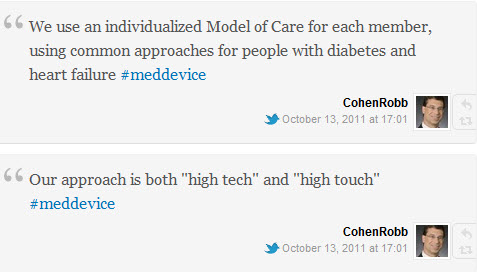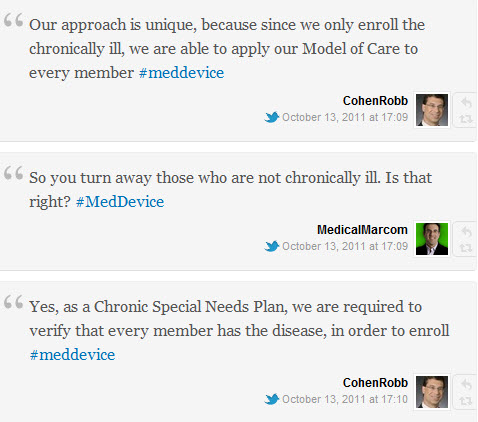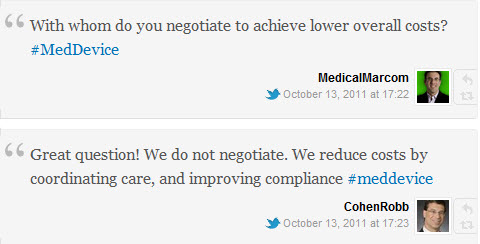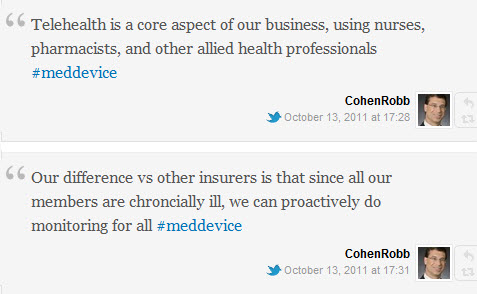 4 min reading time
4 min reading timeI knew Robb Cohen, XLHealth’s Chief Government Affairs Officer “back when.”
He’s too modest to tell you himself, so I will.
Robb helped write the XLHealth business plan as a consultant and was among the first 10 employees. Now XLHealth has approximately 1100 employees and $2 billion in revenue.
(As the proud son of a businessman who created livelihoods for hundreds, this affects and touches me personally.)

Joe Hage: Robb, 20 years is a long time. I’m very impressed with what you’ve built at XLHealth. Tell us about it.
Robb Cohen: XLHealth provides care coordination for people in Medicare, mostly with Diabetes and Heart Failure. XLHealth is the largest Medicare Chronic Special Needs Plan in the country, and focused on medically underserved beneficiaries.
Joe Hage: So who are your clients? Who pays the bills?
Robb Cohen: We have two clients in a sense. One is Medicare, and the other is all the members of the health plan.
Robb Cohen: Yes. For 34 million, Medicare is the “Insurance Company,” that’s one of our customers.
The other 12 million are members of the health plan. They pay the premium to a private company, like us. We are a Medicare insurance company, similar to Humana, Kaiser, United HealthCare, and others.
Our point of difference is we focus on the chronically ill, where we can both improve quality (and lives) and lower costs.
Joe Hage: How do you directly benefit the chronically ill versus competitive offerings?
Joe Hage: Take me through the diabetes example. What is the “common approach” for this segment?
Robb Cohen: By high tech, I mean we have registry system that collects medical, pharmacy, social, mental health, and other data. The system constantly uses data to prioritize the need to fill gaps in care, such as make referrals, take medicines, etc.
Joe Hage: You were telling me the registry is like a “Red Light, Green Light” system.
Robb Cohen: Then, we are held accountable by Medicare, to have an intensive Model of Care for every member. Before I explained “high tech.” Now I’ll say a little about “high touch.”
Once a member joins our Plan, the first encounters include a telephone welcome call, and a NP or Physician home visit.
Joe Hage: Nice. Let me change the subject a bit.
The World Bank identifies US Medicare liabilities as largest single global liability. According to healthcare reform expert @gunterwessels (a client), it’s up to $1.3 million per US Household.
Robb Cohen: We improve quality and reduce costs, for the “80/20” population – the 20% that costs 80% of the dollars.
Some Medicare facts:
• The lowest spending 50% (the healthy), cost about 4% of the dollars.
• The highest spending 20% spend almost exactly 80%. These are overwhelmingly those with multiple chronic diseases.
The diseases on which XLHealth focuses, diabetes and heart failure, are among the largest cost drivers. These are manageable.
Robb Cohen: Health care costs are a combination of Price and Volume. We manage Volume, not Price.
Joe Hage: In essence, you are running a monitoring service.
Robb Cohen: Yes, at any one time, we are monitoring every member, via the registry, and running dozens of “campaigns” to fill gaps in care. So, for persons with diabetes, we reduce amputations, heart attacks, drug interactions, and other issues that result in hospitalizations.
Joe Hage: I have a client in the telehealth space. I certainly get the benefit of improved patient compliance.
Joe Hage: As Chief Government Affairs Officer, do you lobby?
Robb Cohen: Yes, we lobby to 1) educate that dollars are driven by chronic disease; and, 2) to create policies that encourage chronic disease management.
Joe Hage: In a previous #MedDevice chat, Gunter Wessels postulated that nationalized healthcare is inevitable. (See Economic Turmoil’s Impact on National Healthcare Reform.) Do you agree?
Robb Cohen: XLHealth focuses on the tools to improve quality and reduce costs. I think private market can do it better. Managed competition maybe. I think regulation should be focused on making the market work, not replacing the market. Utility regulation is a good example.
Joe Hage: @CohenRobb, to say that I’ve enjoyed this #MedDevice chat would be an understatement. When you have a chance, take a look at Gunter’s article.
Would love to hear your comments relative to Gunter’s POV. You are going to the Wharton reunion, yes?
Oh, and check out EndoGoddess App a Godsend for Diabetics?
Robb Cohen: I greatly enjoyed as well. Great to talk to you, and look forward to seeing you in Philadelphia.













